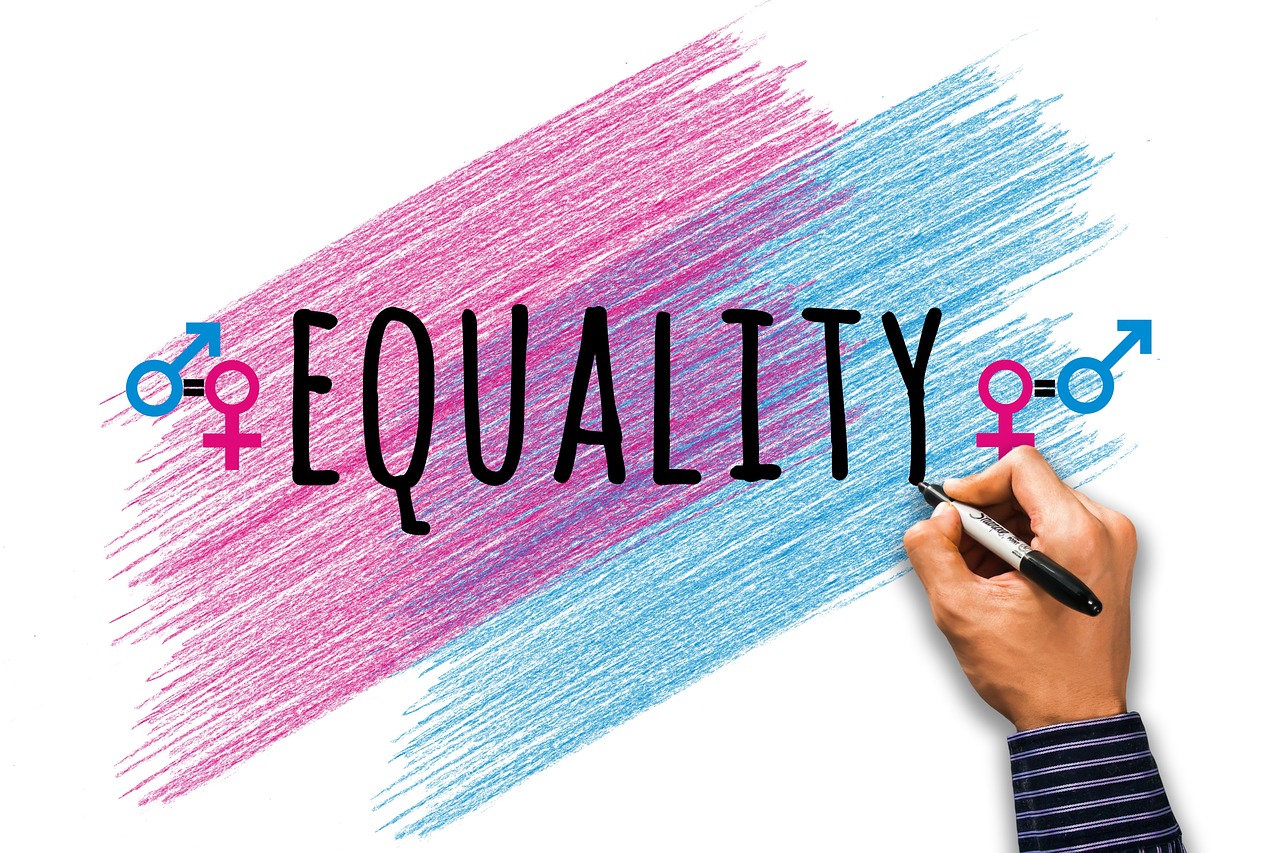Headscarf ban not direct discrimination but capable of indirect discrimination
The recent ruling of the Court of Justice of the European Union (CJEU) in two cases relating to the wearing of the Islamic headscarf (‘hijab’) has attracted considerable press attention and debate. Many commentators have made a number of unfounded assumptions.
The Metro reported that “Employers can bar staff from wearing religious symbols, top EU Court rules”. This is misleading because the ruling is more nuanced than the headline suggests and the decision does not vindicate a ban at national level.
Since then, the debate has continued. On 25 April 2017, ITV’s This Morning presenter, Holly Willoughby slammed a proposed UKIP policy to ‘ban the burka’ and passionately defended the right to freedom of expression and the right of Muslim women to manifest their religious belief.
In this article, we examine the recent decisions of the CJEU.
Firstly, in Achbita v G4S Secure Solutions, the CJEU ruled that a ban on religious symbols and dress at work which applies equally to all staff can be lawful but only as part of a general policy that prohibits the visible wearing of any political, philosophical or religious symbols. The headscarf ban did not amount to direct discrimination because it affected all employees equally but the CJEU held that it was capable of constituting indirect discrimination because the rule could disadvantage workers of a particular religious group (eg, Islam) more than others.
However, the headscarf ban cannot be based on the wishes of a customer. In Bougnaoui v Micropole the CJEU ruled that a customer’s objection to an Islamic headscarf cannot be a genuine and determining occupational requirement, justifying discrimination.
Factual Background
Achbita v G4S Secure Solutions [Case C-157/15]
Ms Achbita worked for G4S as a receptionist in Belgium. She started work in February 2003. G4S operated an unwritten policy (which was later formalised) banning employees from wearing any visible religious, political or philosophical symbols while on duty on the basis that the company wanted to enforce an appearance of “neutrality”.
In April 2006, she decided that she was going to wear a hijab (headscarf to cover the hair and head, rather than a burka which also covers the face) during working hours. Shortly after this, in May 2006, G4S works council approved an amendment to the workplace regulations which prohibited any visible signs of religious or philosophical beliefs.
In June 2006, G4S dismissed Ms Achbita for failing to abide by the company’s dress code policy when she refused to take off her headscarf, which she wore for religious reasons at work.
The Belgian Court asked the CJEU to determine the issue of whether the prohibition on wearing the hijab at work directly discriminated against Muslim women, bearing in mind the policy of religious neutrality which prohibited all employees from wearing outward signs of their religious or philosophical beliefs in the workplace, in contravention of Article 2(2)(a) of the Equal Treatment Directive (2000/78/EC – “the Directive”).
Bougnaoui and ADDH v Micropole [Case C-188/15]
Ms Bougnaoui, a French design engineer, wore a hijab at work and when she visited clients. Following a complaint from a customer, who requested that there should be “no veil next time” on the basis that the headscarf “upset a number of its employees”, Ms Bougnaoui was asked not to wear her headscarf when visiting clients. She refused to do so and was subsequently dismissed.
The French Labour Tribunal dismissed Ms Bougnaoui’s claim for discrimination based on her religious beliefs and held that the dismissal was not discriminatory because of a “genuine and serious reason”. This decision was upheld on appeal.
The case was then referred by the to the CJEU for a preliminary ruling on whether Micropole’s policy requiring an employee to remove her hijab when in contact with clients was justified on the grounds of it being a “genuine and determining occupational requirement” under Article 4(1) of the Directive.
The Legal Position
The purpose of the Directive is to lay down a general framework for combating discrimination on the grounds of religion or belief (among other protected characteristics such as race, disability, age or sexual orientation) with a view to putting into effect in the Member States the principle of equal treatment.
Article 2(1) which deals with the “principle of equal treatment” prohibits direct and indirect discrimination.
Under Article 2(2)(a), direct discrimination occurs “where one person is treated less favourably than another in a comparable situation”, on any of the grounds, including religion. ‘Religion’ is not defined in the Directive.
Article 2(2)(b) provides that indirect discrimination occurs “where an apparently neutral provision, criterion or practice (PCP) would put persons having a particular religion or belief…at a particular disadvantage compared with others” unless that PCP can be objectively justified by a legitimate aim.
Article 4(1) states:
‘Member States may provide that a difference of treatment which is based on a characteristic related to any of the grounds referred to in Article 1 shall not constitute discrimination where, by reason of the nature of the particular occupational activities concerned or of the context in which they are carried out, such a characteristic constitutes a genuine and determining occupational requirement, provided that the objective is legitimate and the requirement is proportionate.’
In the UK, the Equality Act 2010 (“EQA 2010”) gives effect to, but in some respects it goes beyond, the Directive and establishes a general framework for equal treatment in employment and occupation.
Furthermore, certain fundamental rights are guaranteed by the European Convention for the Protection of Human Rights and Fundamental Freedoms, signed in Rome on 4 November 1950 (‘the ECHR’). Article 9 of the ECHR provides that everyone has the right to freedom of thought, conscience and religion, including the right to manifest his/her religion or belief, in worship, teaching, practice and observance. The freedoms under the ECHR are subject to such limitations as are necessary in a democratic society for the protection of the rights and freedoms of others.
Judgments of the CJEU
Achbita v G4S Secure Solutions
The CJEU ruled that a policy which prohibits the wearing of any religious, political or philosophical symbol at work is not direct discrimination. This is because G4S treated all religions and beliefs the same. The ban applied equally to all workers (regardless of belief or lack of belief) and therefore, the policy prohibiting the hijab did not constitute less favourable treatment because of Ms Achbita’s religious belief. On the facts, there was nothing to suggest that G4S had taken a more conciliatory approach towards other employees with different religious or philosophical beliefs.
Whilst the reference to the CJEU did not include a question about indirect discrimination, the judges confirmed that a blanket ban could amount to indirect discrimination because it could disadvantage certain groups (more than others) such as Muslim women who wish to wear the hijab.
Unlike direct discrimination, an employer can seek to justify indirect discrimination if a policy has a legitimate aim and there is a proportionate and necessary means of achieving that aim. Whether or not indirect discrimination can be justified will always involve a balancing act between the harm caused to the employee and the benefit gained by the employer.
Where the employer has a policy of upholding political, philosophical or religious neutrality in customer-facing roles, this may justify any discriminatory treatment. However, the CJEU left it for the Belgian Court to decide that on the facts and to strike a fair balance between the conflicting interests.
In Bougnaoui v Micropole SA (Case C-188/15), it was not clear from the acts as to whether Ms Bougnaoui was dismissed for failing to comply with a company policy, or whether it was in response to Micropole’s willingness to take account of a customer’s request “no longer to have services provided by a worker wearing an Islamic headscarf”.
The CJEU ruled that it was for the referring Court to ascertain the real reason for dismissal.
If the dismissal was based on Micropole’s failure to comply with an internal policy or rule which prohibited the wearing of any visible sign of political, religious or philosophical beliefs and which applied equally to all employees, then the dismissal would not constitute direct discrimination but rather, potential indirect discrimination, if the requirement for neutrality, could not be objectively justified by a legitimate aim (provided that the means of achieving that aim are appropriate and necessary – see judgment of G4S Secure Solutions).
However, if Ms Bougnaoui’s dismissal was not based on the existence of an internal rule of neutrality, it would be necessary to determine whether Micropole’s willingness to take account of a customer’s wish was justified on the basis that it constituted a genuine occupational requirement.
It was only in very limited circumstances that a characteristic related to religion could constitute a genuine occupational requirement – a concept which referred to a requirement that was objectively dictated by the nature of the occupational activities concerned or of the context in which they were carried out and did not cover subjective considerations such as the willingness of an employer to take account of the wishes of a customer.
The CJEU stated: “establishing a general framework for equal treatment in employment and occupation must be interpreted as meaning that the willingness of an employer to take account of the wishes of a customer no longer to have the services of that employer provided by a worker wearing an Islamic headscarf cannot be considered a genuine and determining occupational requirement within the meaning of that provision”.
Therefore, a blanket headscarf ban following a customer’s request would be unlawful if it cannot be objectively justified to achieve a proportionate and legitimate business aim.
Implications
The decision in Achbita is likely to have a fairly limited scope in that a ban is allowed, provided that it is based on internal company policy/rules requiring all employees to dress neutrally. This would require a policy that prohibits all employees from wearing anything that contains a religious, political or philosophical symbol so any prohibition would need to include other religious symbols such as the kippah or the turban.
The ruling does not actually ‘ban the hijab’ or crosses, hence the misleading nature of various articles in the press, which suggests that many commentators may not have not read the judgment of either case in full.
However, it does give rise to the possibility that under the Directive, depending on the facts, companies may not always contravene the principle of equal treatment if a Muslim employee is prevented from wearing the hijab at work for religious reasons (or a Jewish man from wearing a kippah). This probably explains the press coverage that the decision has received as the hijab, unlike other forms of religious attire in the workplace such as the turban, has become one of the most hotly disputed items of clothing in Europe.
Regrettably, many commentators have created a misconception about the link between religious conservatism and extremism. Clothing should remain a matter of choice and if a Muslim employee decides to wear the hijab for religious reasons, then she should not be victimised for doing so.
The approach adopted by the CJEU is worrying because certain aspects of the decision risks alienating Muslim women and individuals of other faith groups within the workplace. For example, employers may try to argue that an internal neutrality policy justifies a decision to refuse to employ or retain a Muslim woman who wears the hijab, or a Jewish man wearing a kippah or a Sikh man in a turban in any customer facing role, whereas an atheist who wears a cap or bandana at work for reasons of fashion is not sent to the stockroom or dismissed because the reason for wearing an item of apparel is not in breach of any alleged policy of neutrality.
The ruling also raises significant questions about freedom of religion and its expression. There appears to be a potential conflict between the right to carry on a business and the right to manifest one’s religion at work but it is important to note that the freedom to carry on business is not an absolute right as it is subject to limitations imposed by the right to equal treatment.
In assessing the potential impact of the judgment in the UK, it is difficult to see how an employer could justify a blanket ban on religious dress at work, given that the UK, unlike France and Belgium, generally accepts people wearing religious dress and symbols in workplaces and public spaces. The UK also has a long history of tolerating individuality and the right to manifest religion is respected, subject to some limitations.
Article 9 of the European Convention of Human Rights (“ECHR”) expressly protects the right to manifest religion and belief. Paragraphs 2.60-2.61 of the Equality and Human Rights Commissions Code of Practice draws attention to the distinction between the right to hold a belief, which is absolute and the right to manifest that belief, which according to EU law is subject to limits. According to the Code, ‘placing limitations on a person’s right to manifest their religion or belief may amount to unlawful discrimination; this would usually amount to indirect discrimination’.
It follows that a “no headwear” policy, could constitute indirect discrimination against Muslim women who wear a headscarf, Sikh men who wear the turban and Jewish men who wear a kippah as manifestations of their religion, unless the policy can be objectively justified. The issue of justification and proportionality will of course turn on the facts of each case and it remains to the seen as to how the national courts will interpret the judgments of the CJEU.
If you would like to discuss an employment or discrimination law issue, please contact our employment solicitors on 0207 956 8699 or info@rllaw.co.uk.




